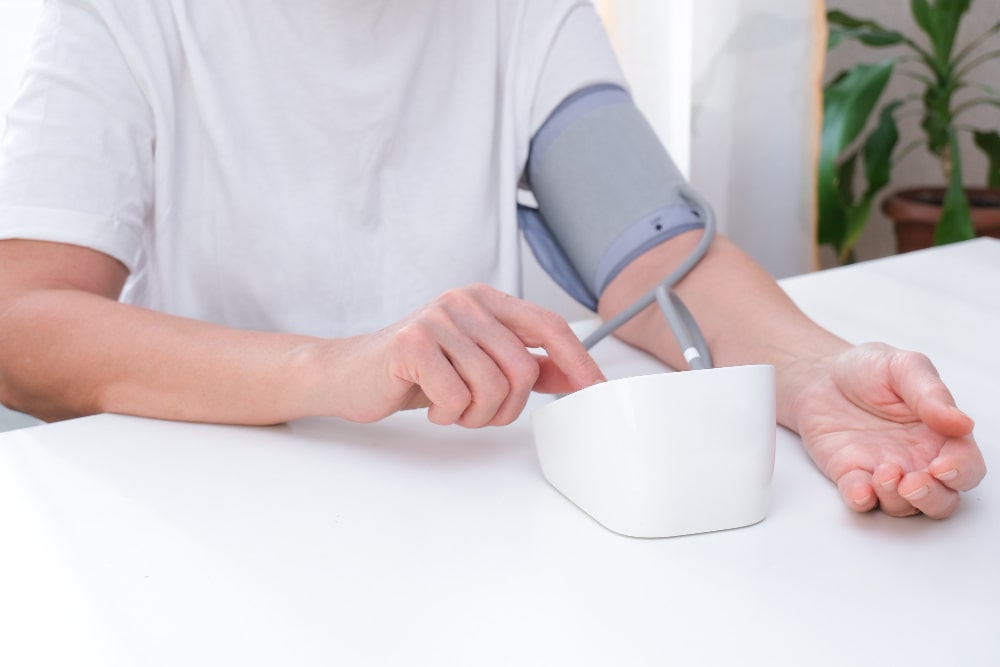The Importance of Managing Your Blood Pressure
High blood pressure, also known as hypertension, is a common health condition affecting millions of individuals worldwide. It occurs when the force of blood against the walls of your arteries is consistently too high, putting strain on your cardiovascular system. If left unmanaged, hypertension can lead to severe health complications, including heart disease, stroke, and kidney problems.
However, the good news is that there are numerous effective strategies and lifestyle changes you can adopt to lower your blood pressure naturally. In this comprehensive guide, we will explore various methods, backed by scientific research, that can help you regain control over your cardiovascular health.
Understanding Blood Pressure and Hypertension
Before we delve into the strategies for lowering blood pressure, let’s start by understanding what blood pressure is and how hypertension develops.
What is Blood Pressure?
Blood pressure refers to the force exerted by the blood against the walls of your arteries as your heart pumps it around your body. It is measured using two numbers: systolic pressure and diastolic pressure. The systolic pressure represents the force when your heart beats, while the diastolic pressure is the force when your heart is at rest between beats.
Normal blood pressure is typically around 120/80 mmHg, with the systolic pressure (top number) indicating the pressure on your arteries when your heart contracts, and the diastolic pressure (bottom number) representing the pressure when your heart is at rest.
Understanding Hypertension
Hypertension occurs when your blood pressure consistently exceeds the normal range, typically reaching 130/80 mmHg or higher. This condition places extra strain on your heart and blood vessels, potentially causing damage over time. Hypertension is often referred to as the “silent killer” since it rarely exhibits noticeable symptoms, making regular blood pressure monitoring crucial for early detection.
Factors Contributing to High Blood Pressure
Several factors can contribute to the development of hypertension. Understanding these risk factors is essential for effectively managing and lowering your blood pressure.
Lifestyle Factors
1. Unhealthy Diet: A diet high in sodium, saturated fats, and cholesterol can significantly increase your risk of developing hypertension. Processed foods, fast food, and excessive consumption of sugary beverages are common culprits.
2. Lack of Physical Activity: Sedentary lifestyles and insufficient exercise can contribute to weight gain and increase your chances of developing high blood pressure.
3. Excessive Alcohol Consumption: Consuming alcohol in large quantities or on a regular basis can raise your blood pressure. Limiting alcohol intake is essential for maintaining healthy blood pressure levels.
4. Smoking: Smoking damages your blood vessels and raises your blood pressure. Quitting smoking is crucial for improving overall cardiovascular health.
5. Stress: Prolonged periods of stress can lead to increased blood pressure levels. Employing stress management techniques, such as meditation or exercise, can help alleviate this risk factor.
Medical and Genetic
Factors
1. Age: As individuals get older, the risk of developing hypertension increases. It is important to prioritize regular blood pressure check-ups as you age.
2. Family History: Hypertension tends to run in families, indicating a genetic predisposition. If you have a family history of high blood pressure, it is crucial to be proactive in monitoring and managing your blood pressure levels.
3. Chronic Conditions: Certain medical conditions, such as diabetes, kidney disease, and sleep apnea, can increase your risk of developing hypertension. Effective management of these conditions is essential in maintaining healthy blood pressure.
4. Medications: Certain medications, such as oral contraceptives, decongestants, and nonsteroidal anti-inflammatory drugs (NSAIDs), can elevate blood pressure levels. Consulting with your healthcare provider regarding the potential effects of medications on your blood pressure is crucial.
Effective Strategies to Lower Blood Pressure Naturally
Lowering blood pressure naturally involves making positive changes to your lifestyle and implementing proven strategies. Let’s explore some effective approaches to manage and reduce hypertension.
Dietary Modifications
1. Adopt a Heart-Healthy Diet: Emphasize a diet rich in fruits, vegetables, whole grains, lean proteins, and healthy fats. This eating plan, commonly known as the Dietary Approaches to Stop Hypertension (DASH) diet, has been shown to effectively lower blood pressure levels.
2. Limit Sodium Intake: Excessive sodium consumption can raise blood pressure levels. Aim to reduce your daily sodium intake to less than 2,300 milligrams (mg) or even lower, especially if you have hypertension.
3. Incorporate Potassium-Rich Foods: Potassium helps counterbalance the effects of sodium on blood pressure. Increase your intake of potassium-rich foods, such as bananas, oranges, spinach, and sweet potatoes.
4. Reduce Alcohol Consumption: Moderate alcohol consumption (up to one drink per day for women and up to two drinks per day for men) may have some health benefits. However, excessive alcohol intake can elevate blood pressure levels. If you have hypertension, it is advisable to limit alcohol consumption or avoid it altogether.
Regular Physical Activity
1. Engage in Aerobic Exercise: Aerobic activities, such as brisk walking, jogging, swimming, or cycling, can effectively lower blood pressure. Aim for at least 150 minutes of moderate-intensity aerobic exercise or 75 minutes of vigorous-intensity exercise per week.
2. Strength Training: Incorporate strength training exercises into your routine two or more days a week. Building muscle can help improve overall cardiovascular health and lower blood pressure.
3. Be Consistent: Consistency is key when it comes to physical activity. Strive to make exercise a regular part of your daily routine for long-term blood pressure management.
Stress Management
1. Practice Relaxation Techniques: Engage in activities that promote relaxation, such as deep breathing exercises, meditation, or yoga. These practices can help lower stress levels and subsequently reduce blood pressure.
2. Prioritize Sleep: Getting enough quality sleep is vital for maintaining overall health, including blood pressure regulation. Aim for 7-9 hours of sleep per night
.
3. Seek Support: Sharing your concerns and feelings with loved ones or seeking professional help can provide valuable support in managing stress and its impact on blood pressure.
Other Lifestyle Adjustments
1. Quit Smoking: Smoking damages blood vessels and increases the risk of hypertension. Quitting smoking is one of the most significant steps you can take to improve your cardiovascular health.
2. Maintain a Healthy Weight: Losing excess weight and maintaining a healthy body mass index (BMI) can significantly lower blood pressure levels. Aim for a BMI within the normal range (18.5-24.9).
3. Limit Caffeine Intake: While the evidence linking caffeine to high blood pressure is inconclusive, some individuals may be more sensitive to its effects. Monitor your caffeine consumption and adjust as necessary.
FAQs about Lowering Blood Pressure
1. Is it possible to lower blood pressure without medication?
Absolutely! In many cases, lifestyle modifications alone can effectively lower blood pressure. However, it is essential to work closely with your healthcare provider to determine the most appropriate treatment plan for your specific situation.
2. Can stress management techniques really help lower blood pressure?
Yes, stress management techniques can play a significant role in lowering blood pressure. Chronic stress can elevate blood pressure levels, so incorporating relaxation practices into your daily routine can help mitigate this risk factor.
3. Are there any natural supplements that can help lower blood pressure?
Some natural supplements, such as garlic extract, fish oil, and hibiscus tea, have shown potential in reducing blood pressure levels. However, it is crucial to consult with your healthcare provider before starting any supplements to ensure they are safe and suitable for you.
4. How long does it take to see results from lifestyle modifications?
The timeframe for seeing results from lifestyle modifications can vary from person to person. Generally, making consistent changes to your diet, exercise routine, and stress management practices can lead to noticeable improvements in blood pressure within a few weeks to a few months.
5. Should I continue taking medication for high blood pressure if I make lifestyle changes?
If you have been prescribed medication for high blood pressure, it is important to continue taking it as directed by your healthcare provider, even if you make lifestyle changes. Lifestyle modifications can often complement medication therapy, and your healthcare provider will guide you on the appropriate course of action.
6. Can I eat out at restaurants while following a heart-healthy diet?
Yes, it is possible to make healthy choices when dining out. Look for menu options that incorporate lean proteins, whole grains, and vegetables. Ask for dressings or sauces on the side and opt for steamed or grilled dishes instead of fried options.
Conclusion
Lowering blood pressure is a critical step towards maintaining optimal cardiovascular health and reducing the risk of complications. By implementing the strategies outlined in this comprehensive guide, including dietary modifications, regular physical activity, stress management, and other lifestyle adjustments, you can take control of your blood pressure levels naturally.
Remember, consistency and a proactive approach to managing your health are key. Regular monitoring of your blood pressure, consulting with healthcare professionals, and adhering to the recommended strategies will help you on your journey to a healthier cardiovascular system.
Unlock the knowledge and master the skills needed to lower blood
pressure and enhance your well-being. Share this article with your friends and family to empower them with valuable information on managing hypertension and leading a heart-healthy lifestyle

